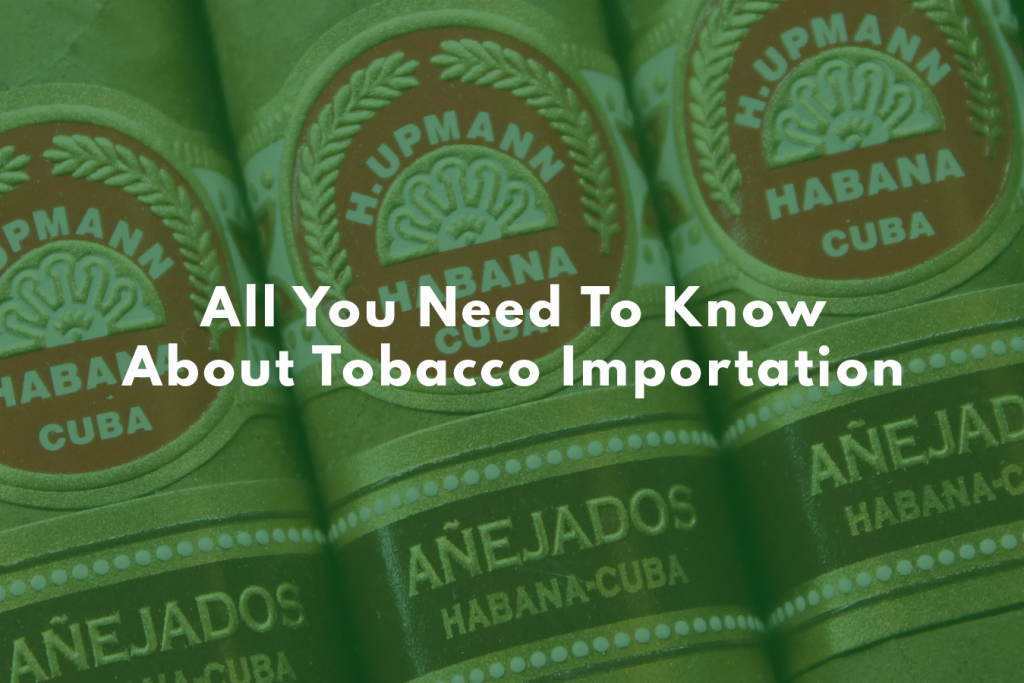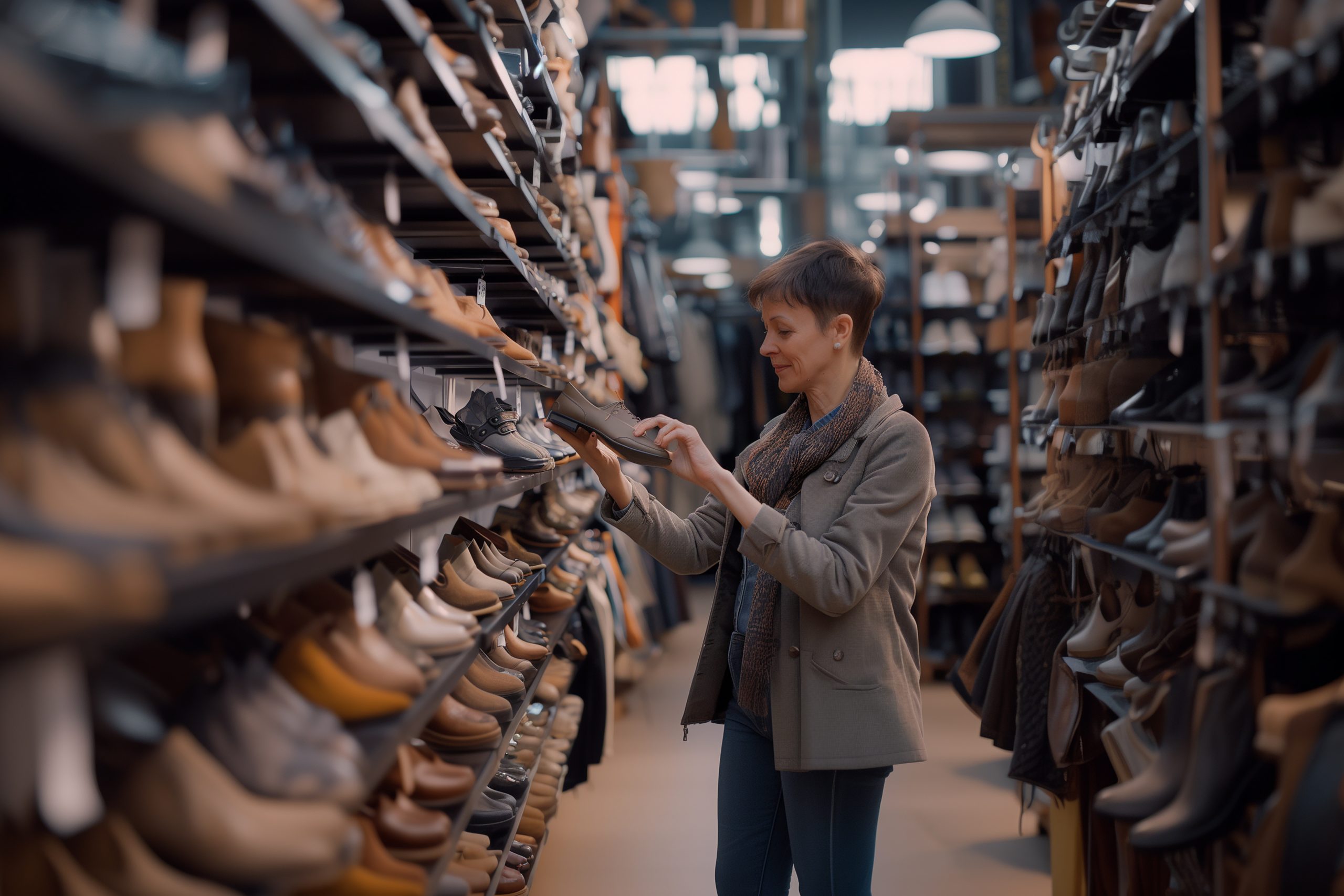The United States is one of the biggest tobacco importers in the world, competing with European and Asian tobacco importing powerhouses for a spot in the top 15. Americans love foreign cigars, imported cigarettes, and duty-free tobacco.
In spite of — or perhaps as a response to — their popularity, tobacco products are subject to strict import laws at the border. Whether you’re interested in personal tobacco importation or you’re looking into starting a cigar import business, be sure to read up about the dos and don’t to have a seamless and trouble-free experience at the border!
The process can get complicated — especially when permits are involved — so don’t hesitate to contact Clearit for support from our expert agents.
Importing Tobacco for Personal Use
Whether for personal or commercial importing, tobacco products as classified by US Customs and Border Protection (CBP) are:
- Cigars
- Cigarettes
- Smokeless tobacco, such as snuff or chewing tobacco
- Pipe tobacco
- Roll-your-own tobacco
The legal ins and outs of what each section actually entails could be talked about at length, but you can find all of the details here: 26 U.S.C. § 5702(c). If you’re traveling with loose tobacco, contact your Port of Entry before you cross.
If you want to import anything classified as a tobacco product, you need to be over the age of 21. Your US customs tobacco allowance is a hard limit — with one exception — that can’t be exceeded. You can bring back the equivalent of up to 200 cigarettes and 100 cigars at once without a permit.
If you’re interesting in shipping cigarettes to the USA over your personal tobacco importation allowance, you need to apply for a permit. With a Tobacco Importer permit, you’ll be able to import tobacco at US customs over the personal limit, even though the permit is usually for businesses. CBP will determine the acceptable limit for your permit.
If you’re a US resident returning to the United States from American Samoa, Guam, the Commonwealth of Northern Mariana Islands, or the Virgin Islands of the United States, every 31 days you’re allowed to bring up 1,000 cigarettes (50 packs or 5 cartons). No more than 200 of those cigarettes can be sourced from outside of those destinations in order for this increased allowance to apply.
Importing Cuban Cigars
As of 2016, Americans have been able to import Cuban goods — bought in Cuba or elsewhere — as accompanied baggage for personal use only. Cuban cigars, therefore, are legal to import personally so long as they’re with you at the border.
Cuban cigars can’t be imported commercially — sorry cigar import businesses — so this is your number one legal way of getting your hands on legal Cuban cigars.
Importing Tobacco Commercially
If you’re looking to import tobacco for resale, the regulations are a bit different. You’ll need a permit from the Alcohol and Tobacco Tax and Trade Bureau, for one. There are different types of tobacco trade permits, depending on what role you’re looking to fill:
- Tobacco importer permits are for anyone who wants to import foreign tobacco products into the United States. This is the one of the permits most relevant to Clearit’s clients.
- Importer of Processed Tobacco permits are for businesses looking to import processed tobacco into the United States. This is the other permit most relevant to Clearit’s clients. If you have a Tobacco Importer permit already, you don’t need this one as well to add processed tobacco to your offering.
- Tobacco Products Manufacturer permits are for businesses that manufacture tobacco products. Tobacco importing business may also hold these permits, depending on how they prepare their products for sale.
- Manufacturer of Processed Tobacco (MPR)are for businesses that manufacture processed tobacco. Holding this permit means you don’t need a separate permit for manufacturing products as well.
- Tobacco Export Warehouse Proprietor permits are for businesses looking to export American tobacco products abroad.
Before your operations are fully approved, you’ll need to deal with packaging laws. Packaging for tobacco products — and particularly cigarettes — is subject to federal regulation through the Cigarette Labeling and Advertising Act. This means getting your labels and packaging approved by the FTC, not just designing them to legal standards and then shipping cigarettes to the USA.
You also will have to submit the ingredients of any imported tobacco products you want to sell to the FDA at least 90 days prior to selling them.
Tobacco Importation: Related Products
Although flavored smokes may be the cigarette of choice for some outside of the US, Bidis — their legal name — are generally not permitted for import. According to the Tobacco Control Act, any cigarette with a “characterizing flavor” is not allowed to be imported. Menthol cigarettes are permitted, though.
If you’re more interested in importing vapes and e-cigs, note that importation is still permitted into the US, as long as importers adhere to the correct nicotine warning label on their packaging. Electronic nicotine delivery systems are subject to FDA rules and regulations and have been since 2016.
—
If you’re returning to the US with some duty free cigarettes from abroad, or you’re managing your tobacco-related business supply chain, your importing options will vary largely on your own unique situation.
As with anything customs related, contact Clearit for help navigating the tobacco importation processes! As customs brokers, we’re experts at navigating tricky import regulations.






